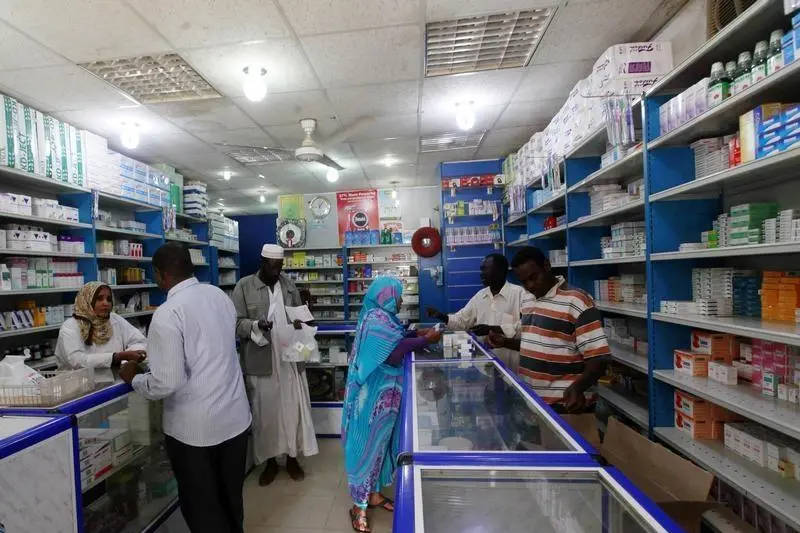PHOTO
KHARTOUM, Sept 7 (Reuters) - Sudan's inflation rate fell to 11.3 percent in August from 14.1 percent in July, the Central Statistics Office said on Monday.
Prices soared in Sudan after South Sudan seceded in 2011, taking with it three-quarters of the country's oil output, the main source of foreign currency used to support the Sudanese pound and to pay for food and other imports.
Cuts in fuel subsidies introduced in 2013 also pushed up inflation, but their effects have since begun to ease.
The latest decline in inflation has come the price of oil and other commodities fell, aided by a favourable comparison with the high inflation rate of 46.4 during August 2014, a statement from the Central Statistics Office said on Monday.
Sudan's inflation reached 46.8 percent in July 2014 as the price of consumer goods and services surged, but the rate declined as the effect of the 2013 fuel subsidy cuts eased.
As an oil importer, Sudan is also benefiting from the 50 percent fall in global oil prices since June last year.
Sudan's Omar Hassan al-Bashir was re-elected president in April. His party claimed credit for pulling the economy out of a tailspin after the South's secession.
(Reporting by Khalid Abdelaziz; Writing by Ahmed Aboulenein; Editing by Larry King) ((ahmed.aboulenein@thomsonreuters.com; +20 2 2394 8097; Reuters Messaging: ahmed.aboulenein.thomsonreuters.com@reuters.net))
Prices soared in Sudan after South Sudan seceded in 2011, taking with it three-quarters of the country's oil output, the main source of foreign currency used to support the Sudanese pound and to pay for food and other imports.
Cuts in fuel subsidies introduced in 2013 also pushed up inflation, but their effects have since begun to ease.
The latest decline in inflation has come the price of oil and other commodities fell, aided by a favourable comparison with the high inflation rate of 46.4 during August 2014, a statement from the Central Statistics Office said on Monday.
Sudan's inflation reached 46.8 percent in July 2014 as the price of consumer goods and services surged, but the rate declined as the effect of the 2013 fuel subsidy cuts eased.
As an oil importer, Sudan is also benefiting from the 50 percent fall in global oil prices since June last year.
Sudan's Omar Hassan al-Bashir was re-elected president in April. His party claimed credit for pulling the economy out of a tailspin after the South's secession.
(Reporting by Khalid Abdelaziz; Writing by Ahmed Aboulenein; Editing by Larry King) ((ahmed.aboulenein@thomsonreuters.com; +20 2 2394 8097; Reuters Messaging: ahmed.aboulenein.thomsonreuters.com@reuters.net))





















